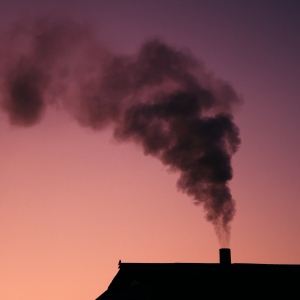Reduction of emissions
The decision of the Commission is based on the importance of the protection of population/citizens and our environment. More than 400,000 European citizens (9-14,000 Hungarian) die in the EU annually due to unfavourable air quality and more people suffer from respiratory and cardiovascular diseases.
Accession to the European Union has resulted in a significant step forward in air quality protection in Hungary. By applying the strict new environment requirements, industrial emission and pollution related electricity and heat production has been reduced drastically. Consequently residential solid fuel combustion, transport and illegal waste combustion have become today’s most significant emission sources.
At present, particulate matter means the biggest health risk and it is Hungary’s most problematic pollutant because significant sources of it are from residential heating, transportation and agriculture.
In the present project 10 Hungarian municipalities representing 8 regions will participate and implement air quality plans. The main objective of the project is to implement air quality plan measures in eight regions to keep appropriate state of environment and to improve air quality in compliance with the human right to healthy environment and clean air.
In order to efficiently raise environmental awareness, a common technical professional content, in the first phase methodology will be elaborated and published by HOI and AMKE in terms of residential and transportation sector. In addition, HOI and AMKE will organize regular awareness raising trainings in each phase, starting from the second phase, for the participating municipalities, project partners to ensure the proper transfer of common knowledge. A special action will focus on information transfer regarding agricultural technics and the optimization of wood supply chain.
One key priority of the campaigns will be to demonstrate proper solid combustion technologies and methods, because in smaller municipalities, especially during winter time, low quality fuel is the number one cause of poor air quality.
Support and popularize the district heating in Budapest city centre in order to limit local air pollution with development plans, awareness raising activities and pilot measurements at residents.
Development of an urban area in Debrecen to improve urban air quality through extensive green area where education and awareness-raising activities will be held in the area. During designing and preparation phase of green area, city planning considerations will also be taken into account.
Limited PM10 emission agricultural technologies will be collected and trained for stakeholders who will able to use it in the framework of a voluntary programme contributing to reduce agricultural emissions.
In order to deal with the agricultural origin air pollution as well, a separate action will aim to promote low emission agricultural technologies for voluntary organisations. The goal of the voluntary program is to acquire air quality protection skills that participants can incorporate into their everyday practice and to develop environmentally conscious approach.
